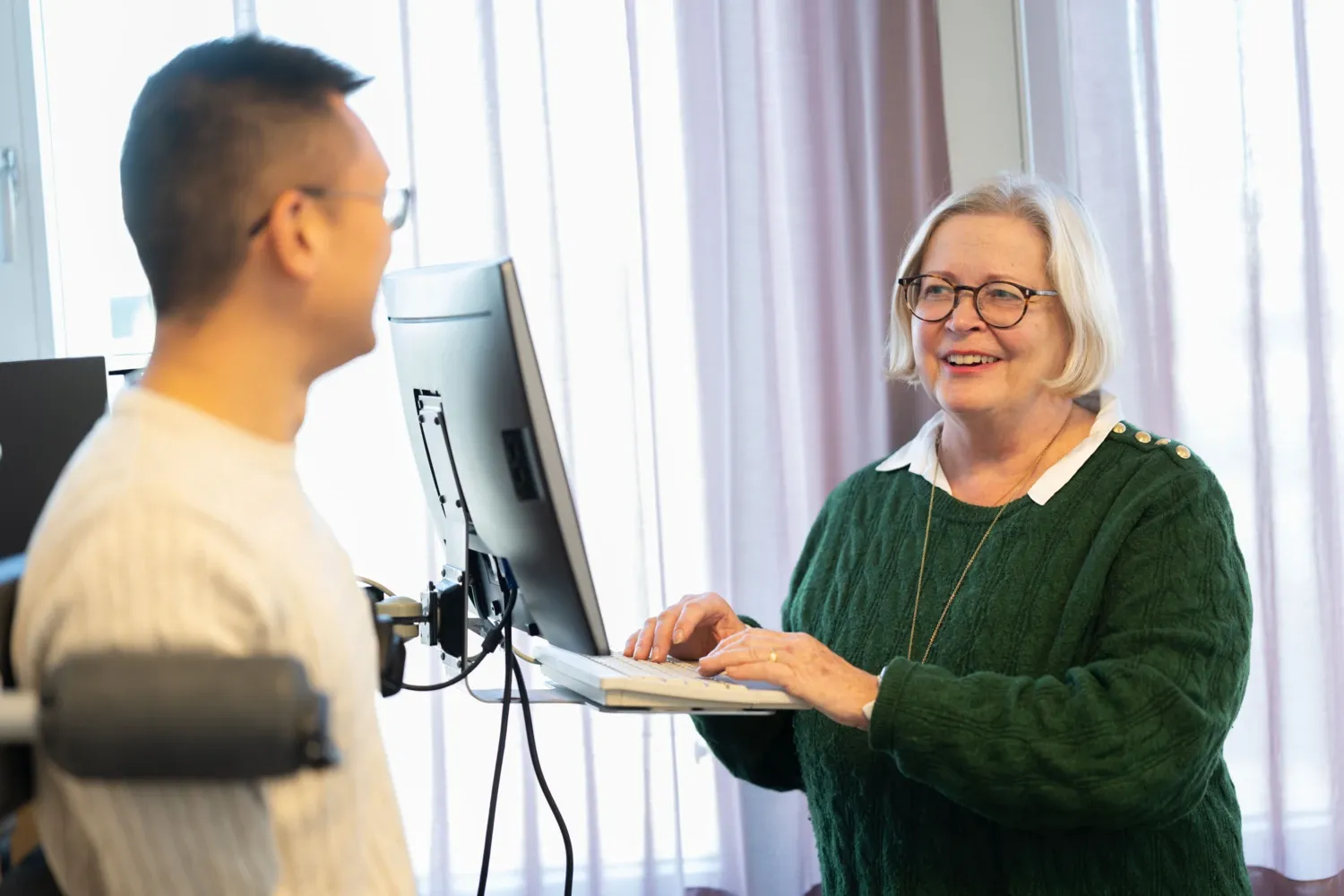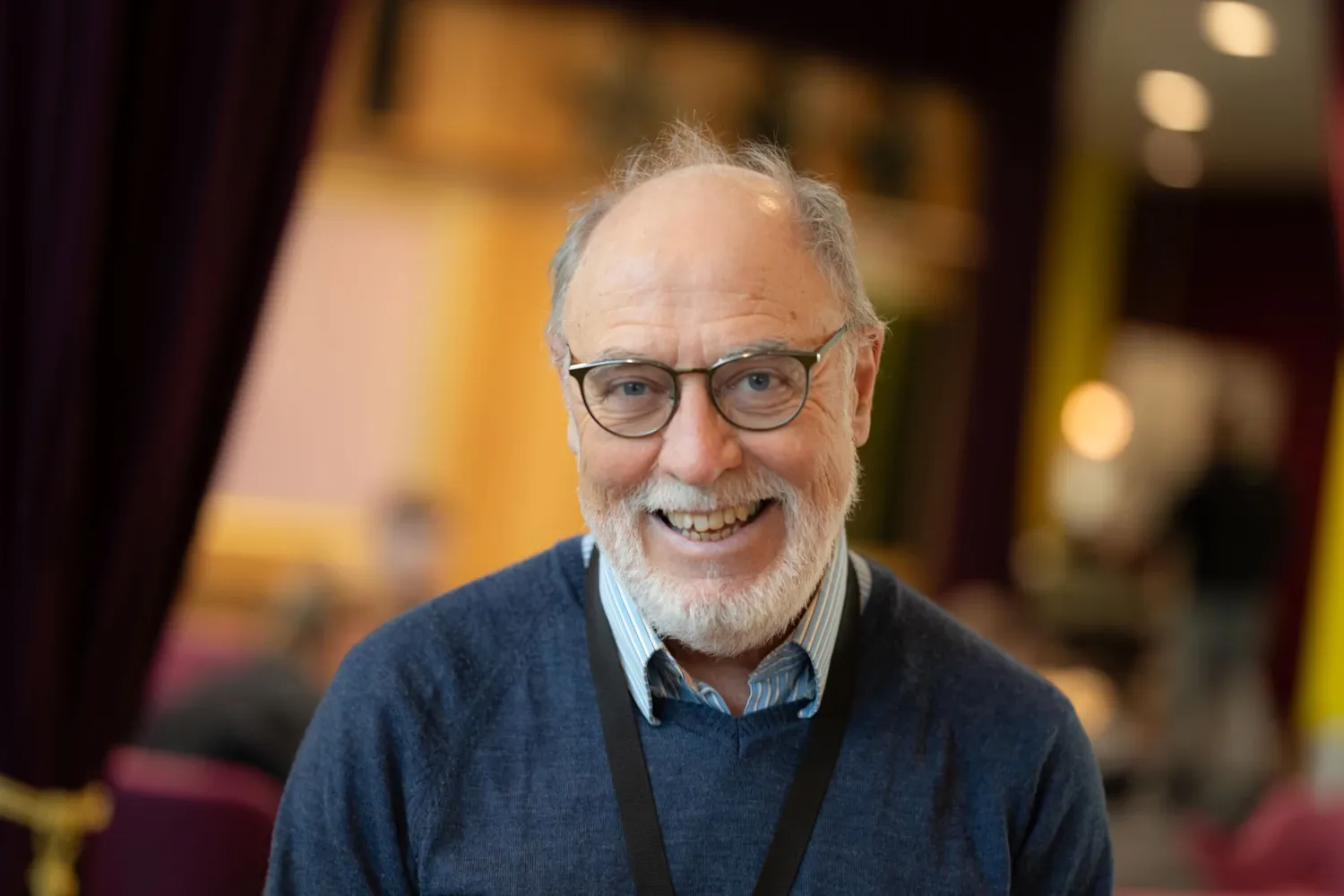FAMILY MEDICINE/GERIATRICS: Evolving Medical Programme, Geriatrics and Family Medicine
The subject of geriatrics is strongly associated with the NVS, and when the Department of General Medicine became part of NVS in 2005, the educational mission of the medical programme was strengthened. During the same period, as General Medicine was integrated into NVS, a new curriculum for KI’s medical programme was being developed. Now, the programme is undergoing another major reform to transition to a six-year structure.
The medical programme involves numerous KI departments and faculty. Today, NVS primarily contributes in the fields of general medicine, primary health care, and geriatrics. During the development of the medical programme between 2004 and 2006, around twenty departments participated, either as course leaders or contributors.
The launch of the 2007 medical programme was preceded by several structural changes. The reorganisation was part of the Bologna Process, an EU initiative that reshaped the structure of education and the credit system. The Bologna Process, initiated in the late 1990s, led to curriculum changes across all higher education institutions in Sweden in 2006-2007.
Good Contact with Primary Care
At KI, this resulted in a project involving broad collaboration between students and faculty. The result was a programme that integrated basic scientific knowledge with clinical skills, offered elective courses, and introduced a semester-long degree project. Teaching was centred on problem-based learning, and student exposure to primary care increased significantly compared to previous curricula.
To strengthen the programme’s connection to primary care, a major effort was made to establish clinical training within the region’s 200+ health centres. The aim was for students to spend approximately one week per term in primary care settings.
Therefore, a so-called primary care strand was introduced into the medical program, which gave the subject space in nine of the eleven semesters. This initiative was highly successful, thanks to structured tutor training, content progression across the programme, and specific evaluation tools to maintain quality.
”KI is an internationally recognised research university, and in national evaluations, our students receive top marks for their theses.”

The Development of Geriatrics in the Medical Programme
Geriatrics was incorporated into the medical programme on a broad scale as early as the 1990s. The field itself originated from what was previously known as long-term care, which had existed as a medical specialty since the late 1960s.
The origins of NVS are closely tied to the establishment of the Division of Geriatrics in 1987. Today, geriatrics operates within NVS as the Division of Clinical Geriatrics. Since the early 1990s, the division has played a key role in geriatrics education within the medical programme.
In the early 1990s, the Geriatric Clinic at Karolinska University Hospital expanded significantly, growing from one to eight departments. By the mid-1990s, medical students attended lectures on geriatrics and were then placed in one of ten geriatric clinics across Stockholm. At these clinics, they participated in case-based seminars led by KI instructors.
From the start, students were engaged in discussions about teamwork, with seminars based on real patient cases. A key focus was on post-discharge rehabilitation and nursing needs, ensuring students developed a holistic perspective on patient care.
”We were early in emphasising a holistic approach to patient care in geriatric education. Today, this holistic perspective and the focus on teamwork preparation are even more prominent in training. In geriatrics, we have been at the forefront of developments at KI."

The Importance of Stiftelsen Silviahemmet
In 2012, KI launched a master’s programme in dementia care for physicians in collaboration with Stiftelsen Silviahemmet. The programme is web-based, comprises 60 credits, and is completed part-time over two years.
”The Master's programme in dementia care, offered in collaboration between Karolinska Institutet and Silviahemmet, has had a significant impact on both the physicians who have completed the programme and the units where they work. We have seen numerous examples of how these physicians have applied their knowledge to support and develop their workplaces.”
The master's programme is designed for an international group of students and has significantly contributed to broadening knowledge about dementia. It also adopts a holistic perspective and aims to foster collaboration across professional boundaries.
New Six-Year Medical Programme
In autumn 2021, KI introduced a new six-year medical programme. NVS has had a major responsibility in the development of the new program in the subjects of general medicine and primary care, as well as geriatrics. NVS is involved in virtually all courses in the new program, including clinical skills examinations and the final-semester examination.
In this new six-year programme, geriatrics plays a more prominent role. One reason for this shift is Sweden’s ageing population, as people are now experiencing illness later in life.
Teamwork and team-based learning (TBL) are also key features of the six-year medical programme. TBL encourages students to work in groups and solve clinical problems collaboratively, preparing them for interprofessional teamwork in their future medical careers.
”One of the key features of KI’s new six-year medical programme is its emphasis on team-based learning. Students work in groups to solve tasks together, providing excellent preparation for their future professional roles.”
When students reach the final semester of the new programme, they will undergo enhanced clinical training, covering primary care, emergency care, psychiatry, and geriatrics. The expansion of clinical education has also fostered even closer collaboration with primary care institutions.
